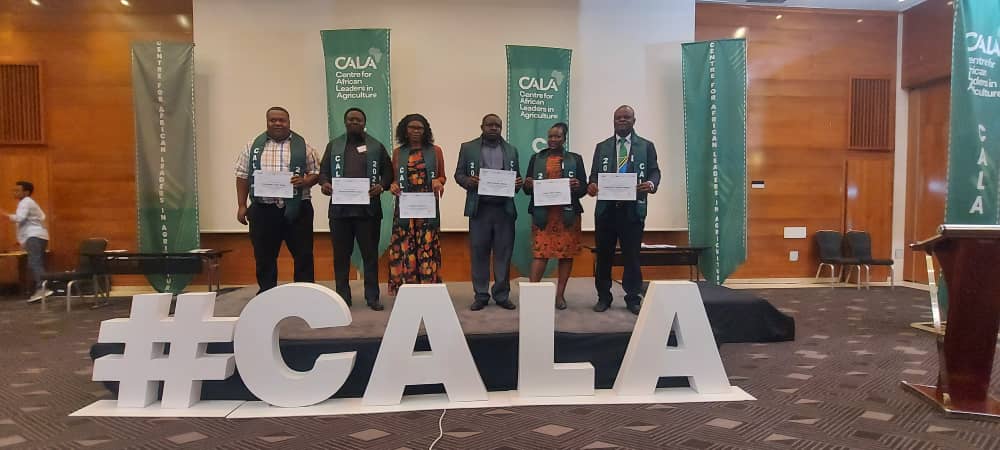Bridging the Seed Divide – The IRRI and Tanzania’s United Quest for High-Quality Rice
As Tanzania propels itself towards the robust goals in the National Rice Development Strategy II (NRDSII 2018-2030), the nation grapples with a significant roadblock – the dire need for high-quality, climate-resilient rice seeds. The answer lies in the active partnership between Tanzania and a trusted ally, the International Rice Research Institute (IRRI), poised to rejuvenate the country’s struggling seed systems.
The IRRI’s innovative and intensive partnership with the Tanzanian government is charged with breathing new life into the nation’s stagnating seed system. This comprehensive project’s linchpin is an immersive training program devised to cultivate local talent and foster an atmosphere conducive to adopting superior rice seed varieties.
February 28th to March 2nd, 2023, in Kilimanjaro, the IRRI and its partners orchestrated intensive training sessions for local farmers, with a notable emphasis on including women and youth. “We are committed to enabling farmers to become entrepreneurial seed producers of high-quality rice,” says George Iranga, Liaison Scientist at the International Rice Research Institute (IRRI) in Tanzania. This initiative aims to displace the traditional low-performance seeds with modern, high-yielding, climate-resilient varieties.
Despite a rich assortment of over 20 high-quality rice seed varieties, only 15% of Tanzanian farmers currently utilise these superior seeds. The dominance continues to lie with the age-old Supa and SARO 5 seeds. While hardy, these varieties offer inadequate yields in light of Tanzania’s ambitious national goal of an average rice yield of 6.15t/ha by 2030. “To transform our agriculture, we need a shift towards quality seeds that are both high-yielding and climate-resilient,” Iranga emphasizes.
The IRRI’s collaborative approach extends beyond government stakeholders. The institute’s wide-reaching partnership with various entities within Tanzania’s agricultural sphere emphasizes an inclusive approach. The central focus of this initiative is promoting the production and marketing of lowland rice seeds, enhancing operational and infrastructural capabilities, and providing farmers with cost-efficient farming tools to facilitate sustainable farming practices.
The program casts a wide net, targeting many beneficiaries, including farmers, extension officers, rice traders, seed companies, and policymakers. Their united goal is to cater to the increasing demand for high-quality seeds, thereby fortifying Tanzania’s domestic and regional rice market ties.
An impressive ensemble of 33 farmers from 19 regions and 33 districts form the driving force of this transformative initiative. “Following the training, these farmers are poised to usher in a new era in rice seed production, equipped with a comprehensive understanding of everything from harvesting to storage and categorization,” states Iranga.
The camaraderie between the Tanzanian government and the IRRI is not new-found. Since the institute’s board first visited Tanzania in 1983, their bond has strengthened. Over the years, the IRRI has consistently implemented research and extension projects to promote the sustainable production of quality rice seeds and uplift agricultural practices.
Despite these strides, the hurdles are substantial. The lack of information and accessibility to high-yielding, climate-resistant rice seeds persist as significant obstacles. “Through our steadfast commitment to education and collaboration, we at IRRI are geared to surmount these challenges,” Iranga reassures. The IRRI’s efforts to induce policy changes can facilitate approval for high-quality seeds and draw the private sector into fulfilling the seed demand, thereby fostering a fertile environment for rice farming in Tanzania.
The quest for high-quality, climate-resilient seeds is vital in realizing the goals of NRDSII 2018-2030. The IRRI’s advocacy for these seeds signals the advent of a transformative period in Tanzania’s rice production. “We’re not just looking at a domestic revolution; we’re paving the way for Tanzania to make its mark in international markets, all while maintaining the highest quality standards,” Iranga affirms.
As Tanzania teeters on the brink of this profound agricultural metamorphosis, the firm partnership between the Tanzanian government and the IRRI symbolises the nation’s unwavering resolve to empower its farming community and secure its food future.


